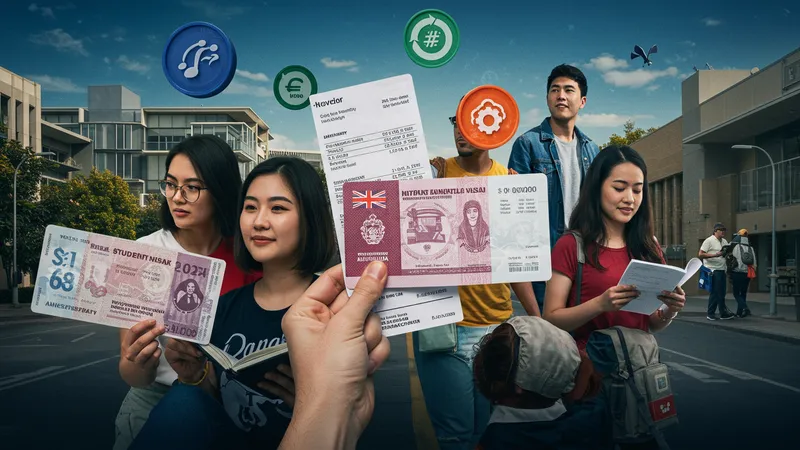
Student Visas & Requirements: A Complete Guide For International Students
Student Visas & Requirements: Financial Provisions and Work Rights
Financial security is a recurring theme throughout the Australian student visa process. Beyond the initial proof of funds, students must maintain sufficient resources for the duration of their studies. Australia’s government reviews current living costs, tuition, and accommodation expenses annually, adjusting financial threshold requirements accordingly. Students must be ready to present updated bank statements or sponsors’ evidence even after arrival, especially during subsequent visa renewals or compliance checks.

Australian student visas offer built-in work rights, contributing to the country’s appeal for international students. As of 2024, holders of the Subclass 500 Student Visa may work up to 48 hours per fortnight during official study periods and unlimited hours during scheduled breaks. This provision supports students with invaluable work experience and partial financial relief, yet strict adherence to these limits is crucial—violations can result in visa cancellation or restrictions on future applications.
Many students seek part-time roles in hospitality, retail, or campus services. Australia’s urban hubs, such as Sydney and Melbourne, present numerous such options, but competition can be high. Institutions offer career counselling, resume workshops, and job boards specifically for international students. Being proactive and balancing work with studies is a skill that often distinguishes successful visa holders in the Australian system.
Managing finances and work obligations requires strong planning and time management. Students are encouraged to budget carefully, factoring in health insurance, daily expenses, and emergency funds. Developing practical financial habits early on not only supports compliance with visa requirements but also lays the groundwork for effective personal management—an essential for both academic and future professional success in Australia.